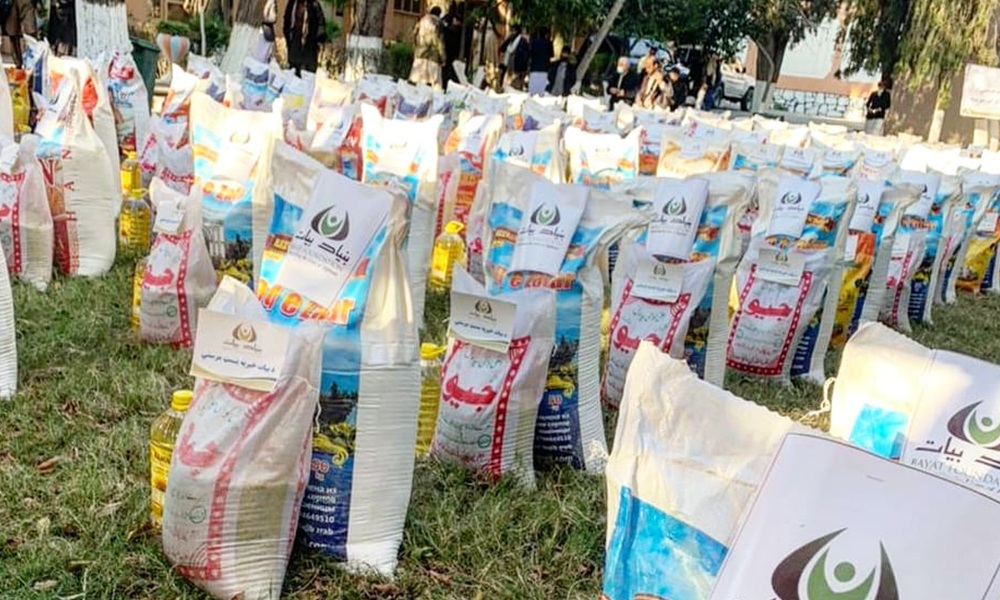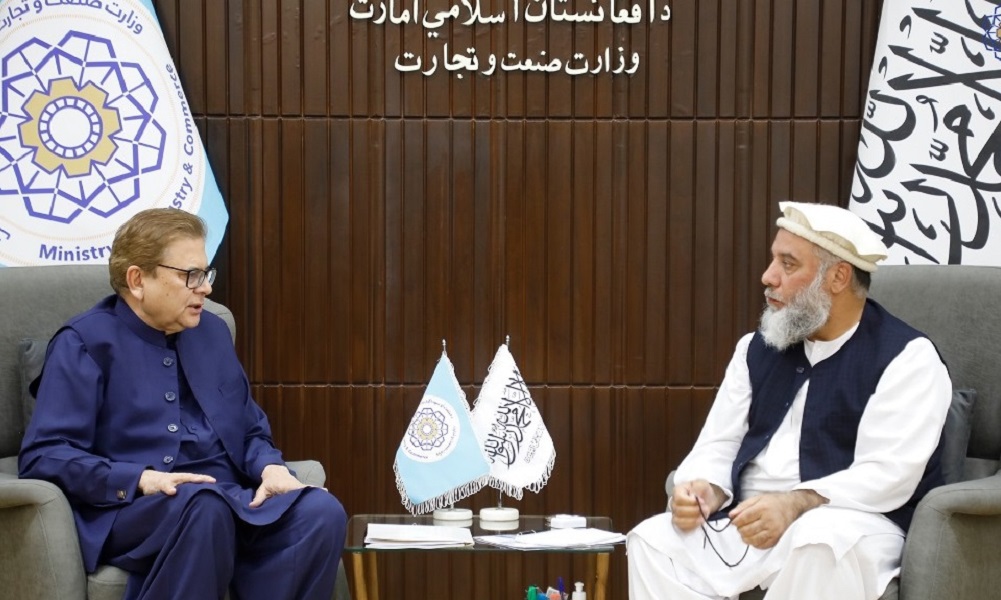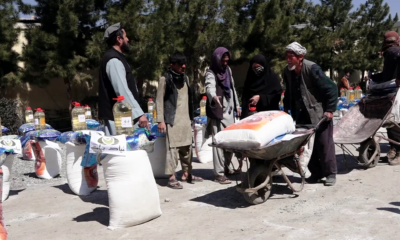Latest News
Bayat Foundation distributes essential provisions to crisis-hit Kunar residents

As part of their annual winter charity drive, the Bayat Foundation rolled out aid to at-risk families in Kunar province over the weekend.
Each year the foundation provides winter aid to needy families. However, this year, the foundation stepped up its winter aid campaign considerably in order to reach as many desperate families who have been hard hit by the ongoing economic and humanitarian crisis in the country.
Over the weekend, hundreds of Kunar residents received much-needed food parcels, which included flour, rice and oil, Bayat officials said.
For the vast majority of Afghans, winter this year has brought with it extreme hardships and with an estimated 22 million people facing severe food shortage, the aid provided by Bayat Foundation has been warmly welcomed by thousands of families across the country in the past two months.
Bayat Foundation continues its nationwide emergency relief in Kunar Province. 200 families, in dire need, were provided essential food packages consisting of flour, rice, and oil.
Help us to reach more families in all 34 provinces!https://t.co/pFWoySI5Uy pic.twitter.com/01JCzMIFJ5
— The Bayat Foundation (@bayatfoundation) January 9, 2022
Already, the foundation has distributed thousands of food parcels to more than a dozen provinces in Afghanistan including Kabul.
The foundation’s deputy CEO, Haji Mohammad Ismail, told Ariana News that they distributed the food parcels to at-risk families, which included disabled people, living in Kunar.
“We are continuing our (Bayat Foundation) aid campaign and today we were in Kunar province and distributed foodstuff including flour, rice and oil to deserving and disabled people,” said Haji Ismail.
Kunar officials also welcomed the move and said there were many desperate families in the province.
“We are grateful for the Bayat Foundation aid, and call on them to help at-risk people in Kunar and people across Afghanistan,” said Abdullah Haqqani, deputy governor of Kunar.
Recipients of the food parcels were also very grateful for the supplies and called on other charity organizations to follow suit.
“Bayat helped us, may God reward them. They (Bayat Foundation) always help us, may God reward them,” said one grateful Kunar recipient.
Bayat Foundation’s campaign comes amid an ongoing crisis in the country which is driving up poverty levels. The United Nations warned late last year that as many as 22 million people are going hungry and that a humanitarian crisis is busy unfolding.
Latest News
Sources: US drops bounties on key IEA officials

Sources close to Acting Interior Minister Sirajuddin Haqqani tell Ariana News that the U.S. government has removed bounties on several Islamic Emirate officials.
According to the sources, those no longer on the list include Sirajuddin Haqqani, Abdul Aziz Haqqani, and Yahya Haqqani.
Latest News
Azizi and Sadiq discuss Kabul-Islamabad trade and transit challenges

Acting Minister of Industry and Commerce, Nooruddin Azizi, and Mohammad Sadiq, Pakistan’s Special Representative for Afghanistan, met on Saturday to address ongoing trade and transit challenges, stressing the importance of preventing political tensions from impacting economic ties, the ministry said in a statement.
The two officials focused on finalizing the Preferential Trade Agreement (PTA) and resolving issues related to the Afghanistan-Pakistan Transit Trade Agreement (APTTA), the statement read.
The meeting also discussed the upcoming visit of Pakistan’s Deputy Prime Minister to Afghanistan and a planned visit by an Islamic Emirate delegation to Pakistan.
The ministry hailed Sadiq’s visit to Kabul as a positive step, with Azizi emphasizing its constructive role in enhancing bilateral trade relations.
Latest News
Muttaqi to Pakistani envoy: Trade and transit obstacles benefit no one

Acting Foreign Minister Amir Khan Muttaqi and Pakistan’s Special Representative for Afghanistan Mohammad Sadiq met on Saturday and discussed bilateral relations, political and economic cooperation, security and transit, said Zia Ahmad Takal, head of public relations at Foreign Ministry in a statement.
In this meeting, Muttaqi emphasized that obstacles to trade and transit are not in anyone’s interest and that certain issues should not be linked together.
He added that the process of Afghan refugees returning from Pakistan should be carried out gradually and with dignity.
According to the statement, Pakistan’s special representative also acknowledged that ensuring security in Afghanistan benefits both Pakistan and the region.
He committed to introducing measures to facilitate the visa issuance process for Afghan citizens.
Mohammad Sadiq also stated that practical steps will be taken to resolve existing trade and transit challenges.
-

 World4 days ago
World4 days agoPutin agrees to 30-day halt on energy facility strikes in Ukraine
-

 Sport4 days ago
Sport4 days agoIPL 2025 celebrates 18 years of immense success
-

 Latest News4 days ago
Latest News4 days agoBayat Foundation helps needy families in Kabul during Ramadan
-

 Latest News4 days ago
Latest News4 days agoTorkham crossing to reopen after 25-day shutdown
-

 Latest News3 days ago
Latest News3 days agoHelmand environmental department opens new Zoo
-

 Latest News5 days ago
Latest News5 days agoAfghan-Pakistan talks to reopen Torkham border ‘end on positive note’
-

 Latest News2 days ago
Latest News2 days agoAfghan prisoners in Iran sent home
-

 Latest News3 days ago
Latest News3 days agoTrade resumes as Afghanistan and Pakistan reopen key Torkham border crossing
























